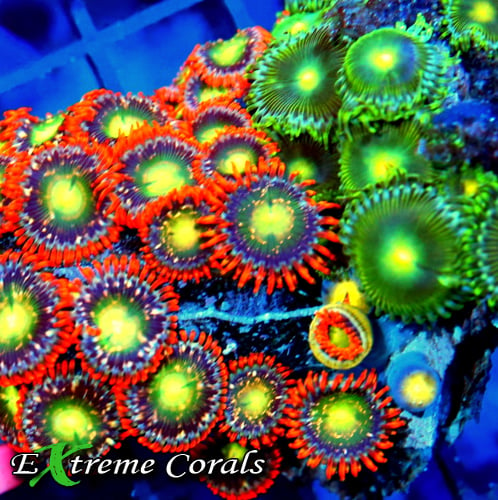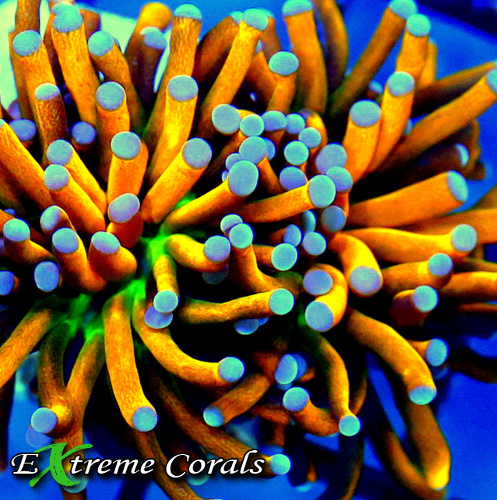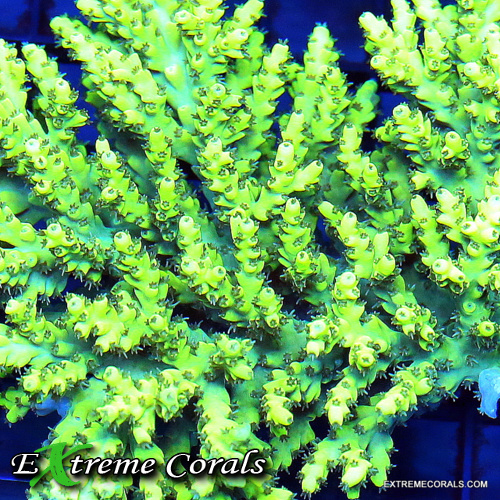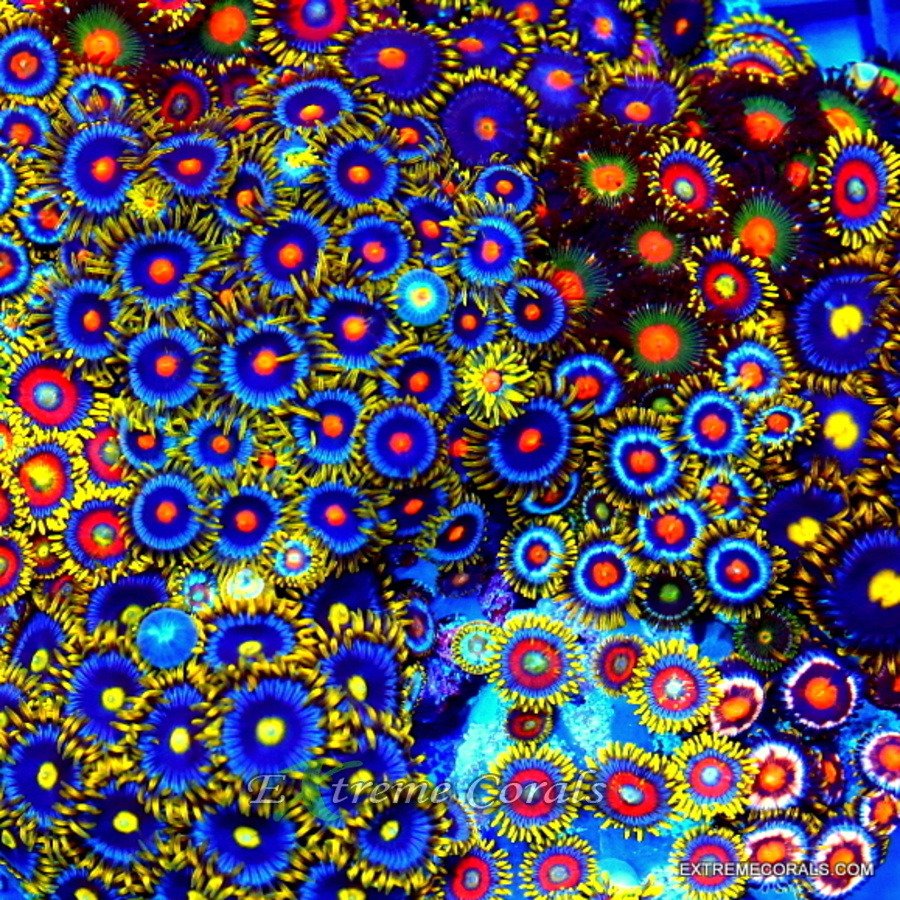Extreme Corals News and Updates
The Beginner's Guide to Starting Your Own Coral Reef Aquarium
Creating a Thriving Underwater World: A Guide to Coral Reef Aquariums
Dive into the vibrant and serene world of coral reef aquariums. Discover the beauty and benefits of bringing a slice of the ocean into your home, from selecting the perfect tank and beginner-friendly corals to maintaining a healthy environment and tackling common challenges
by scott Shiles • May 23, 2024
LPS Coral Care, Reef Tank Maintenance, Soft Corals Care, SPS Coral Care
Understanding Coral Reefs
Coral reefs are structures made up of tiny animals called coral polyps. These animals extract calcium, which helps form their hard skeletons, leading to the creation of the beautiful reef structures we see underwater. Coral reefs provide habitats for a vast range of marine life, including fish, crabs, and sea turtles. They are often referred to as the rainforests of the sea due to their high biodiversity and importance in the marine ecosystem.
Benefits of Having a Coral Reef Aquarium
Coral reef aquariums can bring tranquility and beauty into your home. Research suggests that watching fish swim can lower stress and anxiety levels. The vibrant colors and unique shapes of coral and fish can create a visually appealing focal point in any room. Additionally, maintaining a coral reef aquarium can teach responsibility and patience, as it requires regular care and attention.
Selecting the Right Tank for Your Aquarium
Before you start your coral reef aquarium, you need to choose the right tank. The tank's size will depend on the space you have available and the number of corals and fish you want to keep. Here are a few things to consider when selecting the right tank:
Tank Size: Choose a tank that can accommodate the species of corals and fish you want to keep. A larger tank provides more stability in water parameters and allows for a more diverse selection of aquatic life.
Material: Tanks are commonly made of glass or acrylic. Glass tanks are more scratch-resistant and provide better clarity, while acrylic tanks are lighter and more impact-resistant.
Shape: Tanks come in various shapes like rectangular, bow-front, and cylindrical. Rectangular tanks offer more surface area for gas exchange and better swimming space for fish.
Accessories: Consider the equipment you will need like filters, lights, and heaters when selecting a tank. Ensure the tank has enough space to accommodate these accessories.
Remember, the right tank is crucial for creating a healthy environment for your coral reef inhabitants.
Setting Up Your Coral Reef Aquarium
To set up your coral reef aquarium, begin by selecting a suitable tank size based on the types of corals you intend to keep. Larger tanks provide more stability and space for your corals to thrive. Next, choose a location with adequate lighting and water flow, as these are crucial for coral health. Live rock is essential as it provides natural filtration and a place for corals to attach. You'll also need a protein skimmer to remove waste and a reliable heater to maintain the water temperature. Saltwater mix is needed to create the perfect environment for your corals to grow. Lastly, consider adding coral-safe fish and invertebrates to complement your coral reef ecosystem.
Choosing the Ideal Corals for Beginners
When starting a coral reef aquarium as a beginner, it's essential to choose corals that are easy to care for. Here are some ideal corals for beginners:
Soft corals

Soft corals like mushrooms, zoanthids, and leathers are great for beginners as they are hardy and require less maintenance.
LPS corals

LPS corals such as torch corals, hammer corals, and bubble corals are also good options for beginners as they have moderate care requirements.
SPS corals

SPS corals are more challenging and are not recommended for beginners due to their high care needs and sensitivity.
Remember, choosing corals that match your experience level will help you build a thriving and beautiful coral reef aquarium.
Essentials for Maintaining Coral Colonies
Coral colonies in your aquarium need specific care to thrive. Here's what you need to know: Regular water testing for pH levels, salinity, and temperature is crucial for the health of coral colonies. Proper lighting is essential for the photosynthesis process that keeps corals alive. Maintaining stable water parameters is key to coral growth. Regular water changes and proper nutrient levels are necessary for a healthy coral reef environment.
Lighting and Water Parameters for Coral Health
Good lighting is crucial for the health of your corals as it aids in the process of photosynthesis. LED lighting is a popular choice among aquarium enthusiasts due to its energy efficiency and customizable settings. Ensure to research the specific lighting needs of the coral species you plan to keep. Water parameters such as temperature, salinity, and pH levels are vital for maintaining a stable environment for your corals to thrive. Regular testing and adjustments are necessary to keep these parameters within the ideal range.
Feeding and Nurturing Your Coral Reef
To properly feed and nurture your coral reef, you need to provide a balanced diet for your coral and fish. Corals thrive on a diet of algae, which is essential for their growth and health. Ensure you have the right balance of light and nutrients, as this is crucial for the growth of your coral. Regularly test the water parameters in your aquarium to ensure they are within the correct range for coral health. Feeding schedules should be consistent, and you can supplement your corals' diet with coral-specific foods available in the market. Remember, a well-fed and nurtured coral reef will flourish and bring joy to your aquarium.
Dealing with Common Issues in Coral Reef Aquariums
Coral reef aquariums require carefully balanced environments to thrive and provide a healthy habitat for marine life. Here are some common issues that beginners may encounter when setting up or maintaining their coral reef aquarium:
Algae Overgrowth: Algae can grow quickly in a new aquarium due to excess nutrients or imbalanced lighting. Regular water testing and adjustments to lighting schedules can help control algae growth.
Temperature Fluctuations: Sudden changes in temperature can stress coral and other marine life. Use a reliable aquarium thermometer and consider a chiller or heater to maintain stable water temperatures.
Water Quality: Monitoring water parameters such as pH, salinity, and nutrient levels is crucial for the health of your coral reef. Invest in quality testing kits and perform regular water changes to keep the water clean and balanced.
Disease and Pest Outbreaks: Quarantine new additions to the aquarium to prevent introducing diseases and pests. Keep an eye out for signs of illness in your marine life and be prepared to treat any outbreaks promptly.
Remember, patience and attention to detail are essential for a successful coral reef aquarium. By understanding and addressing these common issues, you can create a thriving ecosystem for your marine pets to enjoy.
To ensure success in your coral reef aquarium, remember to maintain stable water parameters by regularly testing your water and keeping up with water changes. Ensure adequate lighting and proper water circulation for your corals to thrive. Provide a varied diet for your fish and corals, including both frozen and live foods. Keep an eye on any signs of disease or distress in your aquarium inhabitants and address any issues promptly. Regularly clean your aquarium equipment and maintain proper filtration to keep your coral reef ecosystem healthy.

